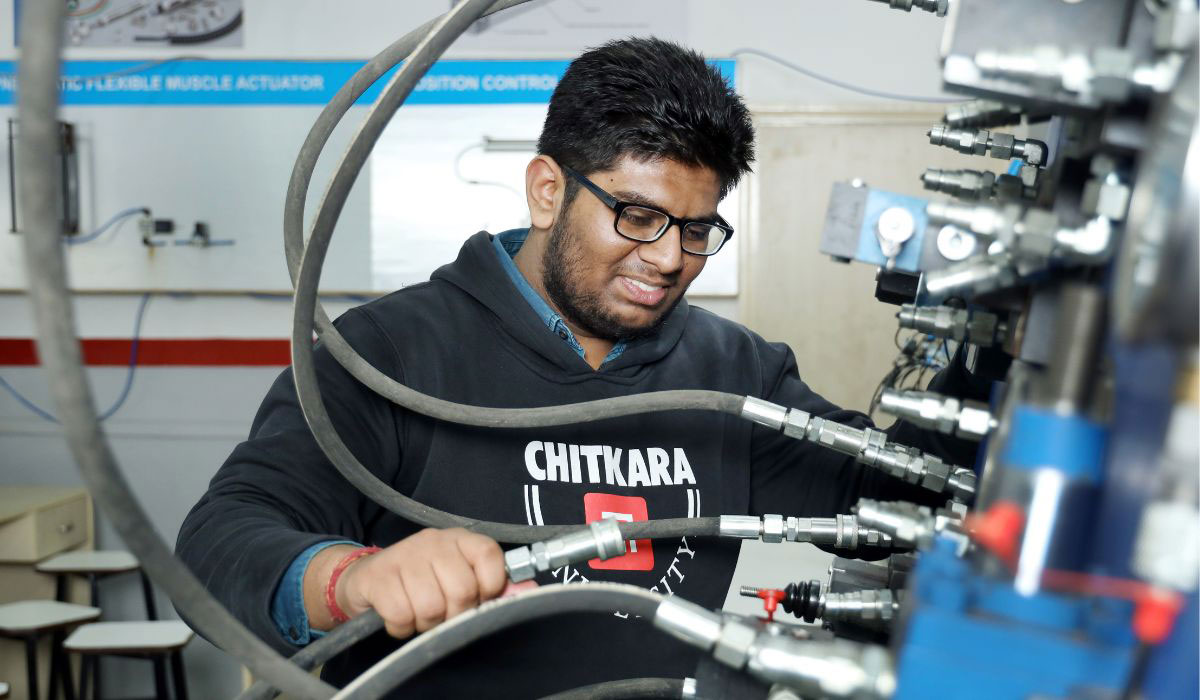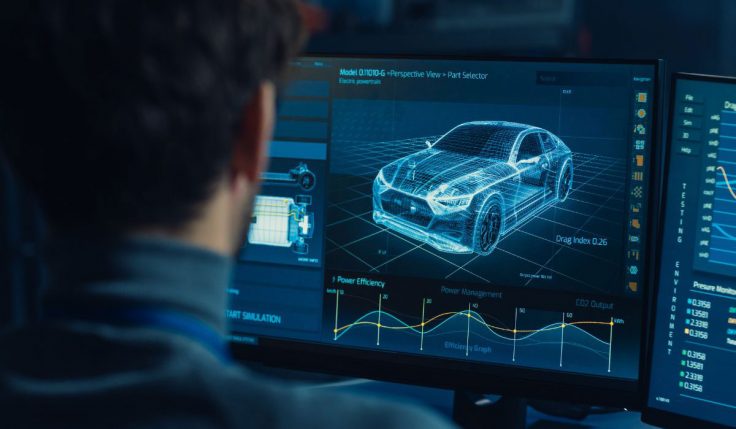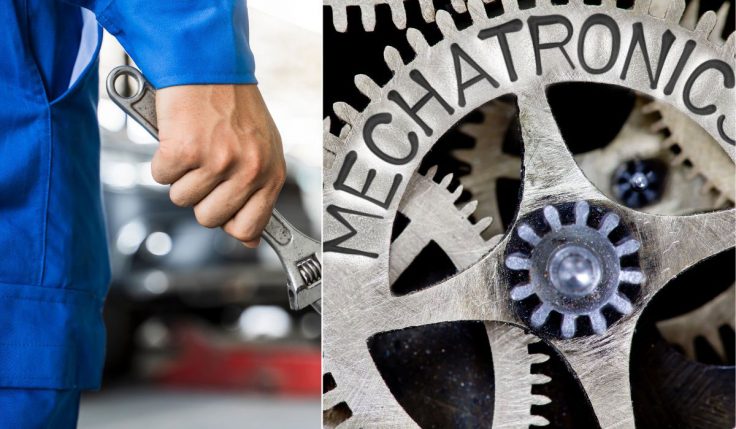Space and deep sea exploration are fascinating frontiers that push the boundaries of human knowledge and technological advancement. These endeavors require the collaboration of various disciplines, and mechanical engineers play a pivotal role in enabling successful missions. The exploration of space and the deep sea is greatly aided by mechanical engineers’ proficiency in designing, analysing, and building complicated systems.
Designing Robust and Efficient Systems: Mechanical engineers are instrumental in designing systems that can withstand the extreme conditions encountered in space and the deep sea. They develop robust structures, machinery, and mechanisms that can endure high pressures, temperature variations, and corrosive environments. From spacecraft to deep-sea submersibles, mechanical engineers employ their knowledge of materials, stress analysis, and fluid dynamics to create reliable systems that ensure the safety and functionality of exploration missions.
Creating life-support systems: Mechanical engineers are essential in creating the technologies that give astronauts a habitable environment during space travel. They develop advanced life-support technologies that regulate temperature, humidity, and air quality, while also managing waste disposal and recycling systems. To maintain human life during space missions, mechanical engineers are in charge of creating effective thermal control systems, filtration systems, and waste management systems. Similarly, in deep sea exploration, they contribute to the design of pressurized habitats and life-support systems that enable researchers to live and work in the challenging deep-sea environment.
Advancing Robotics and Autonomous Systems: Mechanical engineers are at the forefront of developing robotic systems that aid space and deep sea exploration. These robots perform critical tasks, such as collecting samples, conducting experiments, and inspecting remote and hazardous locations. Mechanical engineers design and optimize robotic arms, grippers, and locomotion systems that enable precise and versatile operations. They also aid in the creation of autonomous systems that enable robots to navigate and take decisions on their own, minimising the demand for ongoing human interaction.
Ensuring Structural Integrity: In both space and deep sea environments, mechanical engineers are responsible for ensuring the structural integrity of vehicles and equipment. They analyze and simulate the loads, stresses, and vibrations that these systems will experience during launch, re-entry, or submersion. By employing their expertise in structural analysis and finite element methods, mechanical engineers ensure that spacecraft, satellites, and deep-sea vehicles can withstand the forces they encounter and operate reliably in hostile conditions.
Enabling Energy Generation and Management: Mechanical engineers contribute to the development of efficient energy generation and management systems for space and deep-sea exploration. In space missions, they design solar panels, fuel cells, and energy storage systems to power spacecraft and support various instruments and experiments. Additionally, they support the development of autonomous systems that enable robots to travel and make decisions on their own, reducing the need for constant human intervention. They also develop systems for energy conservation and optimization, ensuring that resources are used efficiently during long-duration missions.
The importance of mechanical engineers will only increase as space and deep sea research advance, spurring innovation and allowing humanity to solve the deep sea and cosmic mysteries.
Also, read: How to Become a Mechanical Engineer?
Career Opportunities in Space and Deep Sea Exploration for Mechanical Engineers
Career opportunities for mechanical engineers in space and deep sea exploration are rapidly expanding as these fields continue to advance. The complicated systems and machinery needed for deep sea and space missions are developed, maintained, and designed in large part by mechanical engineers. Here are some exciting career paths for mechanical engineers in these domains:
Spacecraft Design and Development: Mechanical engineers contribute to the design and development of spacecraft for space exploration. They work on systems such as propulsion, thermal control, life support, and structural design. To guarantee that spacecraft meet strict requirements for safety, reliability, and performance, they also work together with diverse teams.
Robotics and Autonomous Systems: Mechanical engineers can specialize in robotics and autonomous systems for space and deep sea exploration. They design and build robotic systems, such as rovers and robotic arms, used for tasks like sample collection, repairs, and inspections. They also develop autonomous systems that can operate independently in challenging environments, enabling extended exploration and reducing human intervention.
Life Support Systems: Mechanical engineers contribute to the development of life support systems for astronauts during space missions and researchers in deep sea habitats. They design and optimize systems for air circulation, water recycling, waste management, temperature regulation, and radiation shielding. People in harsh situations are protected from harm by these methods.
Deep Sea Submersible Design: Mechanical engineers can work on the design and development of deep sea submersibles and remotely operated vehicles (ROVs). They focus on designing robust structures, propulsion systems, buoyancy control, and manipulator arms. They also integrate various sensors and instruments required for data collection and exploration activities in the deep sea.
Underwater Robotics and Instrumentation: Mechanical engineers can specialize in underwater robotics and develop innovative systems for deep sea exploration. They create autonomous underwater vehicles (AUVs) and remotely operated underwater vehicles (ROUVs), which are used to map the ocean floor and conduct surveys and data collection. They also work on developing specialized instruments and sensors for underwater exploration.
Environmental Monitoring and Sustainability: Mechanical engineers play a role in developing environmentally sustainable solutions for space and deep sea exploration. They create systems for resource preservation, waste management, pollution control, and energy efficiency. They contribute to minimizing the environmental impact of exploration activities and promoting sustainable practices.
Structural Analysis and Safety: Mechanical engineers are responsible for analyzing and ensuring the structural integrity and safety of space vehicles, deep sea vehicles, and related infrastructure. They conduct stress analysis, vibration analysis, and simulation to ensure that these systems can withstand the extreme conditions they encounter during launch, re-entry, or submersion.
Research and Development: Mechanical engineers can engage in research and development to advance the technologies used in space and deep sea exploration. They participate in cutting-edge initiatives, create new materials, improve system performance, and expand propulsion, energy storage, and environmental control technologies.
Also, read: Scope of Mechanical Engineering in India
Mechanical engineers can further technical innovation, scientific research, and the exploration of new frontiers by pursuing careers in space and deep sea exploration.
Chitkara University is a renowned educational institution known for its excellence in providing quality education and nurturing talent across various disciplines, including engineering. Many people consider the university’s engineering programs to be among the best in the nation. With a focus on practical learning, industry collaborations, and a multidisciplinary approach, Chitkara University prepares students to excel in their chosen engineering fields.






